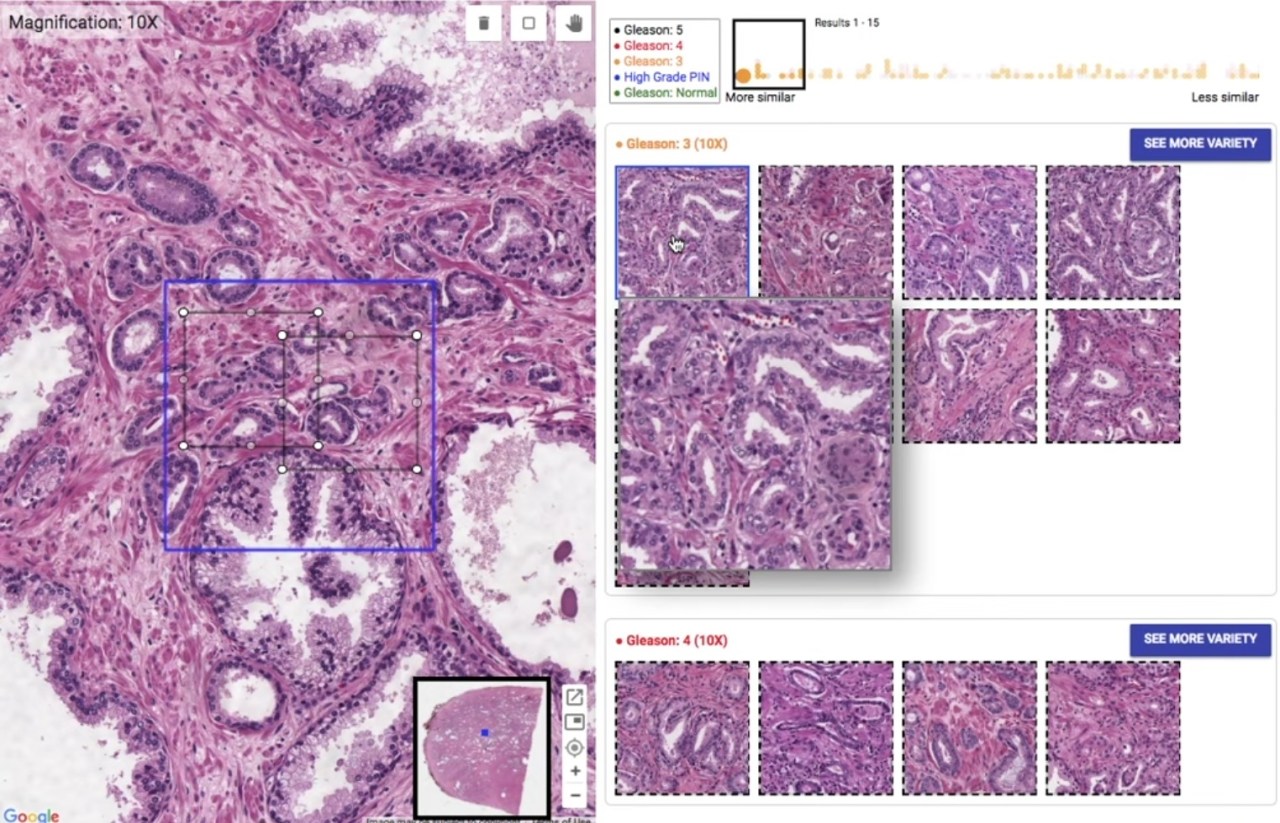When it comes to spotting and diagnosing cancer, the stakes couldn’t be higher. The intricacies of oncological pathology place immense pressure on medical professionals, often leading to long wait times and the possibility of misdiagnosis. Enter Google’s groundbreaking tool, SMILY—an innovative system designed to transform the way cancerous tissue samples are analyzed through a sophisticated reverse image search technique. SMILY is not merely a tool but a collaborative partner for pathologists, aiming to enhance accuracy and ease in the diagnostic process.
Understanding the Challenge in Cancer Diagnosis
Cancer diagnosis is far from straightforward; it involves a meticulous examination of tissue samples under a microscope, requiring expert knowledge and keen observation. Traditionally, pathologists have had to compare patient samples against a backdrop of known cancerous tissues, often relying on cumbersome databases or even printed materials. This painstaking process underscores the necessity for more advanced tools that can sift through vast amounts of data and provide relevant insights quickly.
How SMILY Works: A Seamless Integration of AI and Expertise
SMILY, which stands for “Similar Medical Images Like Yours,” leverages machine learning to improve diagnostic processes significantly. Here’s how it operates:
- Image Input: Medical professionals upload high-resolution images of tissue samples into the system.
- Initial Examination: Users examine samples just as they would conventionally, zooming in and navigating around the images.
- Image-Matching: When a pathologist identifies an area of concern, they can use SMILY to highlight it, prompting the tool to find similar regions in the Cancer Genome Atlas—an expansive repository of tagged sample images.
This method not only allows for quick identification but also provides a broader context for the findings, helping pathologists make more informed decisions.
Customizable Search Features Enhance Diagnostic Accuracy
What sets SMILY apart is its focus on user interaction and customization. Recognizing that pathology is rarely a one-size-fits-all approach, the team behind SMILY has embedded features that promote an iterative diagnostic process:
- Shape Selection: Users can isolate specific shapes within the area of concern, allowing the AI to focus on what truly matters while minimizing distractions from irrelevant features.
- Iterative Exploration: By selecting seemingly promising results, users can delve deeper into related cell types or characteristics, enabling a rabbit-hole effect that enriches their insights.
- Feature Filtering: The system is capable of recognizing specific pathological features (like fused glands or tumor precursors) that can be included or excluded from the search, allowing for a more tailored approach to diagnosis.
This level of granularity allows pathologists to refine their queries continually, ultimately leading to more accurate diagnoses and treatment recommendations.
Results and Future Implications
The potential for SMILY is vast, and initial results from testing with real pathologists have been promising. Studies show that not only did doctors quickly adapt to using SMILY, but they also began employing creative methodologies to gauge their hypotheses against the tool’s capabilities. Remarkably, the utilization of SMILY did not compromise diagnostic accuracy while enhancing user experience.
Although SMILY is still in the experimental phase, it represents a step forward in human-machine collaboration for expert decision-making in medical diagnostics. As the technology undergoes further validation, we may very well see a future where AI assists in transforming healthcare practices, making them more efficient and potentially saving lives.
Conclusion: The Future Is Bright for AI in Oncology
Google’s innovative approach with SMILY highlights the exciting intersection of artificial intelligence and healthcare. As enhancements to the tool continue to roll out, we stand on the brink of significant advancements in cancer diagnostics. The ability to analyze tissue samples in a more streamlined and nuanced manner can equate to better patient outcomes, improved efficiency, and ultimately, more lives saved.
At fxis.ai, we believe that such advancements are crucial for the future of AI, as they enable more comprehensive and effective solutions. Our team is continually exploring new methodologies to push the envelope in artificial intelligence, ensuring that our clients benefit from the latest technological innovations. For more insights, updates, or to collaborate on AI development projects, stay connected with fxis.ai.

